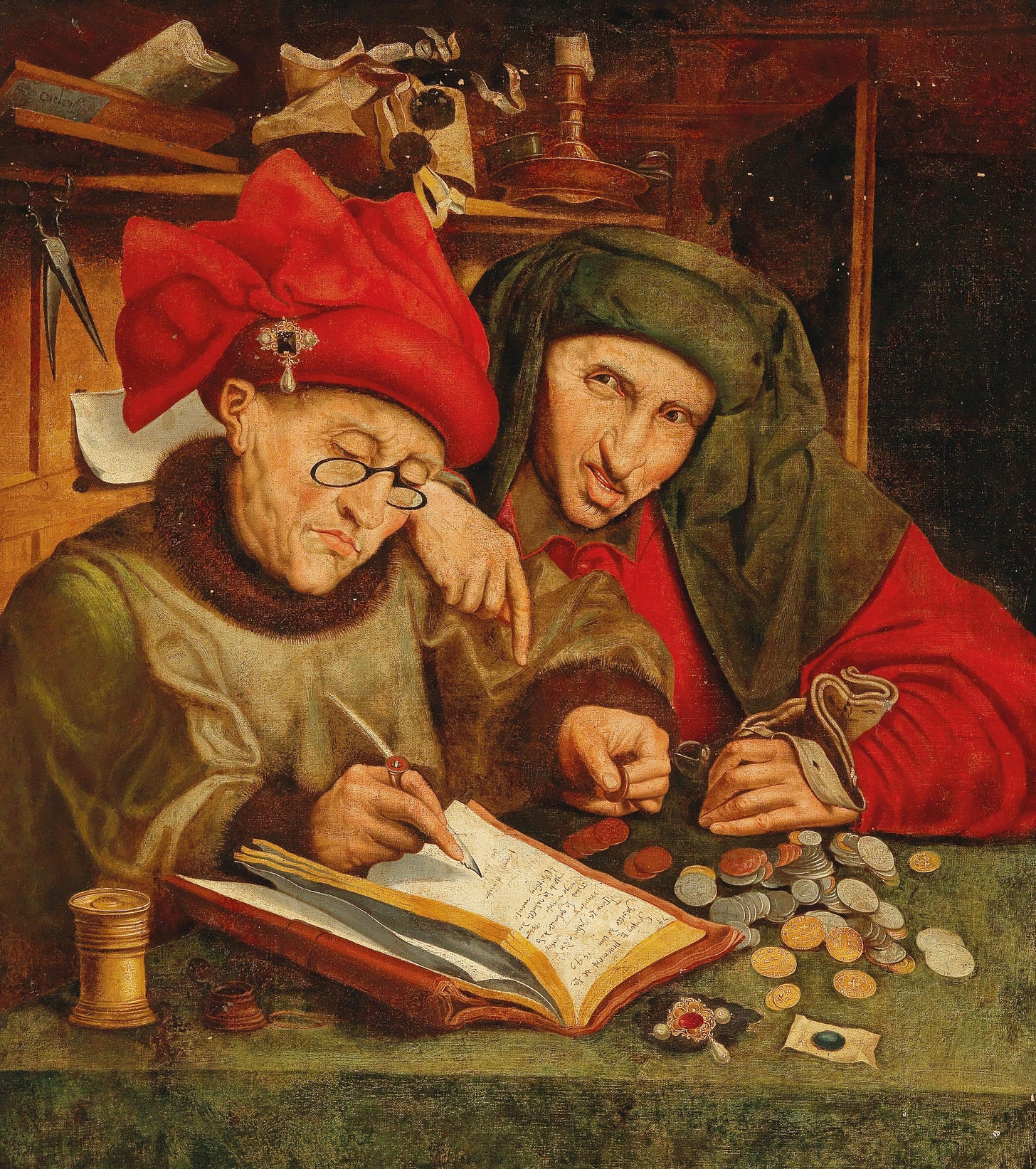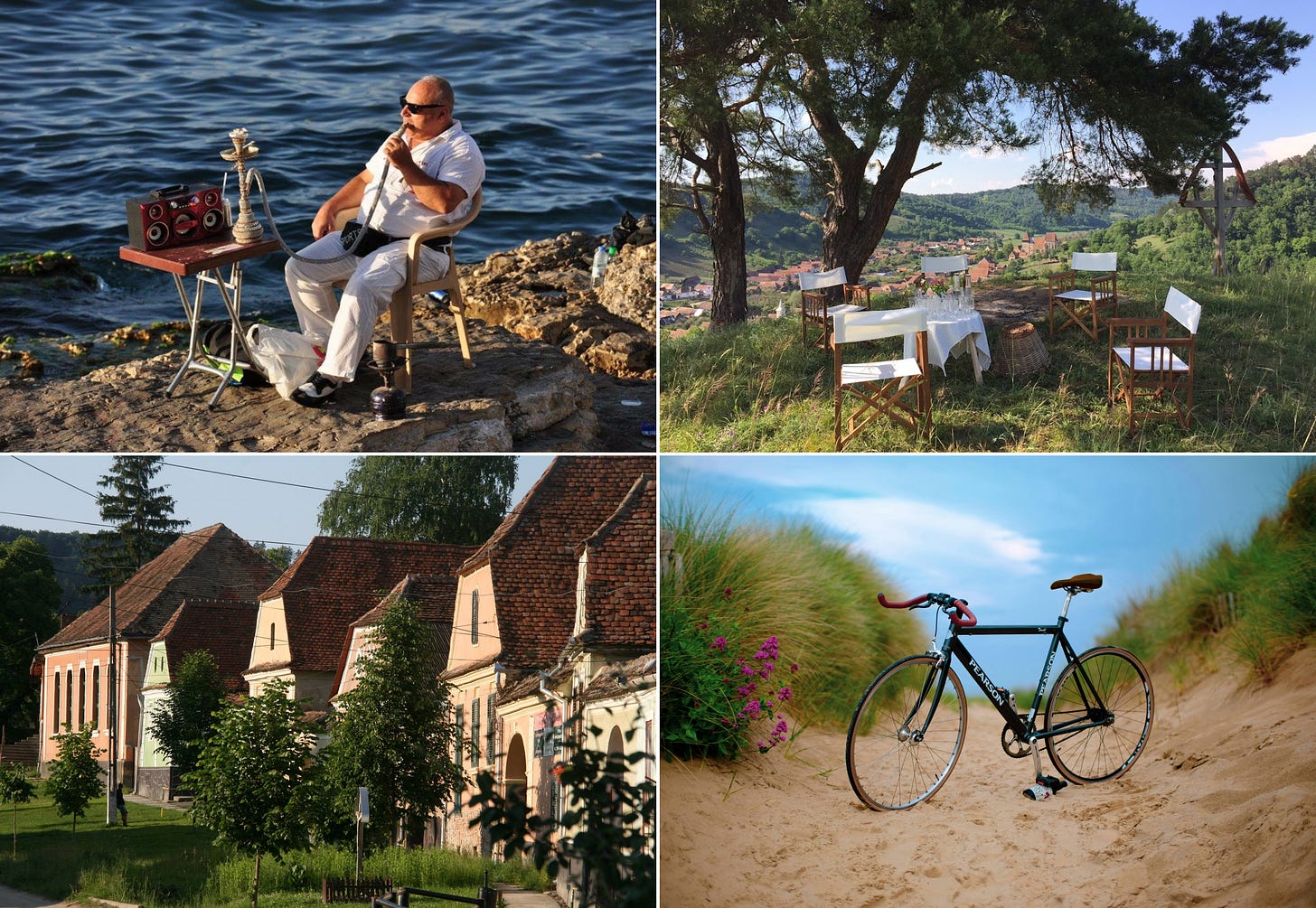The (Real) Beauty of Self-Employment
SA Episode #3
Friends,
Vizi here!
GM from Transylvania 🧛
And welcome to Episode #3 of the The Sovereign Artist series. Here are 3 aphorisms, 2 short essays, and 1 question for you to reflect on.
3 Aphorisms
I.
Philosophers have questions. Scientists have theories. Entrepreneurs have projects. Artists have obsessions. And amateurs have ideas.
II.
Your “passion” emerges as a result of trial-and-error tinkering rather than predetermined desire or choice.
Contrary to popular belief, you don’t have to aim at something.
Follow your curiosity and see what happens.
III.
Dare to build a vagabond intelligence. Be a strategic rebel.
The education system teaches us to be specialists; but the real world is whispering that we need generalists and polymaths.
In 2002, Daniel Kahneman was awarded the Nobel Prize for Economics; although he’s a psychologist. The Wright brothers are credited with inventing, building, and flying the world’s first successful airplane; but they were not aeronautical engineers. Stoicism—arguably the most famous school of philosophy—was not founded by a scholar, but by a merchant, Zeno of Citium.
To innovate, as Arthur Schopenhauer put it, “the task is not so much to see what nobody else has seen but to think what nobody else has thought about that which everybody sees.”
You want to enjoy a helicopter view over various subjects while having the capacity to land anywhere. You want to be able to bring in freshness, reject consensus, and reveal blind spots.
The (Real) Beauty of Self-Employment
I HAVE ALWAYS worked for myself. I’ve never been employed. Not even for one single day. But most people romanticize self-employment the wrong way. The beauty of self-employment is not that you get to drive fast cars, travel to Dubai, rent yachts, or drink overpriced wine. It’s not about endless vacations in exotic places or “working” from your laptop on the beach. This is a trap.
The beauty of self-employment is seeing your capacity to be functional. The beauty of self-employment lies in the courage to build something, from the bottom up, that can stand on its own. You choose responsibility: this is the beauty. This is freedom. Most people think that “X does whatever he wants because he’s free.” The reality is vice versa. He’s free because he does whatever he wants. Freedom is a duty, not a right or a gift. Taking risks is what’s truly liberating.
Working for yourself is obviously more challenging than 9-5 employment. It’s hard to make the transition; for starters, you have to give up all of the benefits employment brings. Think of job security; maybe you get a company car; you don’t have any skin in the game (no risk if the company starts struggling or may go bankrupt); and you don’t “feel” taxes: you don’t have to (consciously) pay any.
Paul Skallas came up with a great observation. Throughout history, there were quite a few revolts against tax collectors. This doesn’t happen as often anymore. Why? Maybe this is because people don’t “feel” taxes today. They’re taken out of your salary automatically. Only people who own small businesses—and pay manually—are obsessed with taxes.
One of the worst things I would hate to tell my grandchildren when I grow old is that I’ve stayed in a well-paid, comfortable job position my entire life doing nothing but sending emails and taking care of endless spreadsheets—waiting for my paycheck to predictably hit my bank account every month or so. It may sound like a gift. But it’s a curse. I don’t want to be a well-paid corporate employee for the same reason I don’t want to be a well-fed lion in a zoo... If you get offended by this rather innocent declaration of independence, ask yourself why.
Desiring full-time employment ad infinitum has nothing to do with “stability”—that’s a delusion. You’re, in fact, fragile. You could create a few quasi-entrepreneurial and artistic projects that, combined, are far more “secure” than any 9-5 contract. See: The End of Jobs by Taylor Pearson.
Risk-taking, starting a business; investing time, energy, hopes, and money—this is a virtue. Be proud if you’re working on some sort of artistic, cultural, or entrepreneurial project. Even though you’re not rich. You’re entitled to be a tad arrogant.
The (other) beauty of self-employment is that you get to spend your days opportunistically without asking for permission. If the weather is perfect today for playing tennis or hiking, I have the option to do that now—not after I finish my 9-5 or during the weekend. Traveling to exotic places or driving luxury cars sounds great—but if that’s your goal, you’re terribly missing the point. Be free now. Be happy now.
If I want to waste my time in a cozy café, cycle a few miles while listening to Mozart and Balkan music in between, go check out a remote village I’ve been thinking about for a very long time, or host events about wine and philosophy—I can simply do it. That’s the (real) beauty. You can get twice as rich either by doubling your profit or by clarifying and purifying your goals and desires. Coco Chanel famously wrote: “The best things in life are free. The second best things are very, very expensive.”
Everyone wants to be a millionaire in the 21st century. It’s a very novel epidemic. The truth is, most people think they want to be millionaires. But, deep down, they don’t want to be millionaires. “Being rich isn’t the fantasy,” Tim Ferriss wrote. “The fantasy is the complete freedom it allegedly allows.”
If You’re So Smart, Why Aren’t You Rich?
In Politics, Aristotle tells the story of Thales of Miletus. Thales was the founder of Greek philosophy, a legendary philosopher and mathematician, and one of the Seven Sages. What’s fascinating about him is that he lived in poverty.
Despite his intellectual accomplishments, the story goes, his meager lifestyle was often cited as proof of the uselessness of philosophy and all other non-applicable knowledge.
But here’s where it gets interesting…
ONE WINTER Thales used his knowledge of astronomy to predict the future of olive crop yield in the cities of Miletus and Chios. Knowing in advance that it would be larger than usual, Thales leased all the olive presses in the area at a massive discount. Later that year, when the bountiful harvest had come to bear, Thales was able to let out the presses at astronomical prices, becoming rich in the process. Then he went back to philosophy.
“You’re rich only if money you refuse tastes (way) better than money you accept.” — Nassim Taleb
SUCH ATTITUDE proves that you have what Nassim Taleb often refers to as “F*** You Money”—which is a sum large enough to get the advantages of wealth (the greatest ones being independence and the ability to only occupy your mind with matters that interest you) but not its side-effects, such as having to attend a black-tie charity event or eating at fancy restaurants where you end up leaving more hungry than you arrived.
Reference: Antifragile by Nassim Taleb
1 Question
Are your goals your own, or simply what you believe you should want?
Are your dreams indeed authentic, or are they default ideals and prepackaged narratives designed by Hollywood, corporate advertising, and intensive social media sessions?
H/T David Perell
Wrapping up…
Hope you liked this episode!
Any feedback, suggestion, or criticism is welcome.
Thank you for your time,
Vizi Andrei
Host of The Sovereign Artist




Slow clap 👏